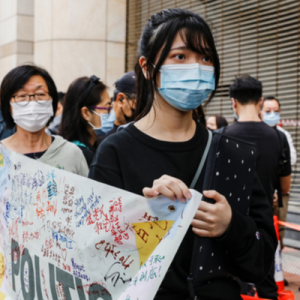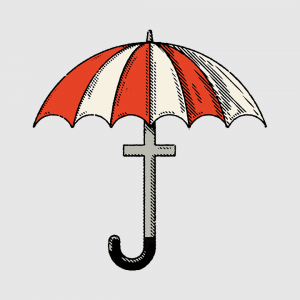
Easten Law is assistant director of academic programs at the Overseas Ministries Study Center at Princeton Theological Seminary.
Posts By This Author
What God Has Done and Will Do Through Our Asian American Experience
We are more than inherited doctrines and practices.
DEADLY SHOOTINGS IN Atlanta this spring left eight dead, including six women of Asian ancestry. In the aftermath, Rev. Byeong Cheol Han, lead pastor of Atlanta’s Korean Central Presbyterian Church, exhorted his congregation to “not just pray, not just worry,” because “it’s time for us to act.” Han continued, “I’m going to urge people with love and peace that we need to step up and address this issue, so that ... our next generation should not be involved in tragic ... violence. ... That’s what Christians need to do.”
Han wasn’t alone. Similar calls to action have been amplified throughout Asian American churches. This heightened awareness of faith and culture’s entanglement with sociopolitical realities signals a call to redefine the essential meaning of Asian American Christianity.
For many first-generation Asian immigrants, ethnic-specific churches foster communities of care and cultural preservation essential for survival. For second- and third-generation Asian Americans, our faith provides spiritual resources for negotiating a cultural identity between a majority culture that never fully accepted us and a similarly foreign minority culture from distant shores. Some Asian American theologies focus on this liminality and how God’s presence is with those stuck between worlds.
Lament Is Prophetic in Hong Kong's Democracy Movement
As Beijing continues to arrest Hong Kong’s pro-democracy leaders, the temptation is to just fight harder, not to mourn — but prophetic work requires both.
Every Hong Kong Church Confronts This Question
How do they situate themselves between Caesar and God?
MORE THAN A year ago, during the early days of Hong Kong’s anti-extradition bill protests, a Christian hymn echoed in the streets. “Sing Hallelujah to the Lord” had become an unofficial protest anthem. A year later, the spirit of hope that permeated the song’s adoption has evaporated.
This summer Beijing overrode the “one country, two systems” principle agreed to in 1997 by implementing a new national security law (NSL) in Hong Kong that gives China’s central government a broad set of powers to silence anything deemed subversive. The effects have been swift and chilling. In August, legislative elections for 2020 were delayed a year; pro-democracy candidates were disqualified. Controversial texts have been removed from public libraries, pro-democracy professors silenced, and newspaper offices raided.
Some of Hong Kong’s leading democracy activists, including legal scholar Benny Tai and Nobel Peace Prize nominee Joshua Wong, confess Christian faith. During the height of recent protests, many pastors invoked Christ in their participation. For example, pastor Roy Chan organized Protect the Children, a civilian peacekeeping collective, to shield young protesters from police violence. Under the new NSL, actions like Chan’s could be prosecutable, with potential life sentences.


